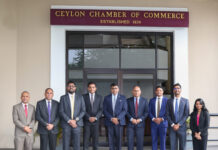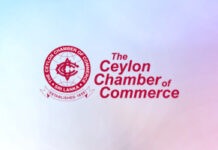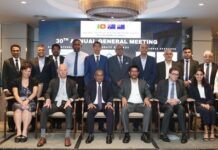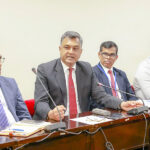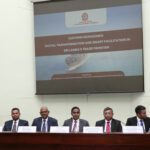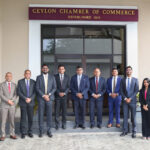The National Chamber of Exporters (NCE) alleged that the dollar liquidity for local companies had been politicised and the policy measures taken would see large numbers from the SME export sector perish. Members wishing to remain anonymous alleged that recent statements by the Ceylon Chamber were insincere and made by those with current access to dollar liquidity and little has been done to create a merit-based system for access to credit.
These sentiments were echoed in themes of NCE President, Ravi Jayawardena in his address at the NCE Export Awards held on 21 January at the Shang Ri La Hotel.
Mr. Jayawardena noted the strong national interest that the export sector provides. Noting the dollar inflows secured during the pandemic and lack thereof from remittances he said, “The major foreign exchange earner for the country has been the export earner. Despite all the challenges we have faced, exporters have done their duty by the motherland”.
Concerning the situation now he said, “SMEs can’t import raw materials. They either have to rely on their supplier or import in small quantities. When they go to the bank they say we can’t help you”.
Mr. Jayawardena alleged bipartisan failure to create a level playing field amongst foreign exchange-earners. He further alleged that no serious policy-making body in the country was concerned with the plight of the SME exporter.
He called on incentives given to remittance earners to be extended to exporters. He further alleged that the export council of Ministers which was reconvened in September 2020 had yet to meet in the last 15 months. He further alleged that the NCE had been prevented from space even as an observer at these meetings.
Mr. Jayawardena said, “We expect the forces that matter to understand and support us. We are going to be in serious challenges”.
He also noted that recent amendments to the tax code created distortions in the costs faced by SME exporters who had small margins and were unable to pass costs incurred by for instance the turnover tax or extended retirement age to their buyers.
Mr. Jayawardena noted broad failure in the agricultural sector through ad-hoc and rushed intervention into fertiliser allocation which was going to hurt output and thereby subsequent exports. Jayawardena predicted major failures in agricultural export firms and noted that regaining lost market share by the surviving entities would remain difficult.
Jayawardena added, “We got independence in 1948 and we had 17 months import cover in foreign reserves”. He went on to note how successive governments eroded this cover.
He added, “Just 23 years later we had the first insurrection. People, especially young ones, took up arms because they didn’t have an opportunity and they were marginalised. Many young lives were lost and we have forgotten the bigger picture”.
Mr. Jayawardena highlighted shortages in many essential products. He said, “Foreign governments are now cautioning their citizens about the civil situation in Sri Lanka”.
NCE Members alleged that over the long term the current politicisation of dollar liquidity would allow the formation of mega-firms that expand not based on their increased efficiency but their privileged access to credit and the acquisition of SME firms at throwaway prices.
Chief Guest Northern Province Governor, Jeevan Thiagarajah called on the export community to help make the Northern Province a surplus district in terms of both water and agricultural produce. The event had as it’s official print media sponsor the Associated Newspapers of Ceylon Ltd.




